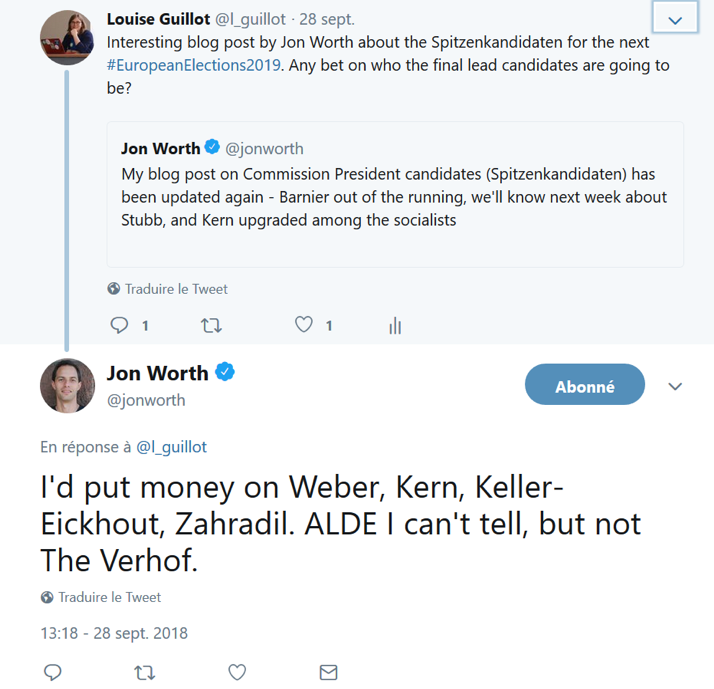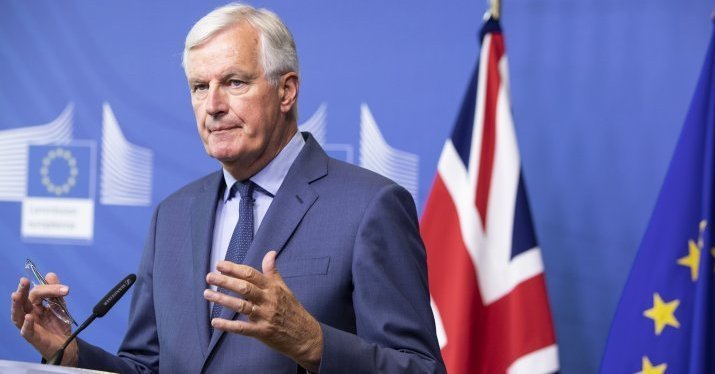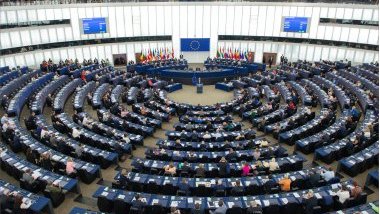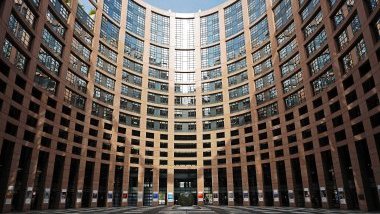Would Michel Barnier have been the “natural” EPP candidate?
Within the main European political parties, talks have started to intensify regarding the appointment of the politicians who will be the lead candidates for the Commission Presidency. Michel Barnier received much political support in both France and Europe. Indeed, throughout the last months, he has established himself as a key figure of European politics. His role as the EU Chief Negotiator for Brexit made him a lead figure in European issues and discussions on EU’s future. Above all, he has asserted a sometimes very firm European position in front of the UK Prime Minister, Theresa May, regarding certain aspects of Brexit such as the protection of the free movement of people in the single market, which has made him a respected figure within the EU. Consequently, some would have easily imagined him as the next European Commission President, but Michel Barnier decided otherwise.
However, some commentators still think that Michel Barnier has his chances to become the Commission President in 2019. Indeed, on 23 February, [during an informal meeting of the European Council, the European Heads of state and government reasserted that they could not guarantee that the person they will propose as the next Commission President would necessarily be one of the lead candidates (or Spitzenkandidaten) during the 2019 European elections. As a consequence, there is a possibility that Michel Barnier may be proposed by the European Council after the elections. If so, he would an arduous task in convincing the European Parliament to confirm his nomination, as some European parties have announced that they would not vote in favour of any candidate who was not a lead candidate during the elections.
Who are the other candidates to the nomination as the EPP’s Spitzenkandidat?
For now, two other candidates declared their candidacy to be the EPP’s lead campaigner: the German Manfred Weber and the Finnish Alexander Stubb. Manfred Weber, the current leader of the EPP Group in the European Parliament, has been presented in the media as the candidate of Angela Merkel. This Vice-President of the Christian Democrat and conservative CSU, the Bavarian branch of the Chancellor’s party (the CDU), recently gained notoriety for the EPP’s occasional ambivalent position towards Viktor Orban and his party, Fidesz, which sits within the group.
Following Michel Barnier’s announcement and the mixed expressions of support for Manfred Weber, who fails to win unanimous support within the EPP, the former Finnish Prime Minister Alexander Stubb decided to run as a candidate. This former MEP and current Vice-president of the European Investment Bank has more experience in executive positions that his German counterpart. He also distinguished himself from Weber with a more moderate political line and recently declared:
“If I were to say in one word, why I am running for Commission president, it is values. Because I firmly believe and am afraid that European values, human rights, fundamental rights, equality, tolerance, rule of law, liberal democracy… are all under threat at this particular moment, from outside of the Union, from inside of the Union, and perhaps from inside of the EPP as well. I think in times of uncertainty you need to anchor onto something, like these values. I want to defend these values. That is the main reason for running.”
Regarding Fidesz; he added that “the EPP is about values – and certainly far-right is not a value that the EPP holds true”, that “[European values] are under attack inside the EPP family, with parties such as [Fidesz] in Hungary”, and that “regarding Fidesz, Orban’s party, I think that values are the most important element. However, with values, it’s binary, either you’re with us, or you’re somewhere else.”
What about other European parties?
Several European parties also announced that they would implement again the Spitzenkandidaten principle for the 2019 European elections. In the Party of European Socialists (PES), Christian Kern, former Austrian Chancellor, had announced his candidacy in September, but finally withdrew from the election run. Pierre Moscovici, the current European Commissioner for Economic and Financial Affairs, had indicated that he wouldn’t be against the idea of himself as the social-democrat Spitzenkandidat, but finally renounced his campaign plans as well.
On 10 October, Frans Timmermans, current Vice-President of the European Commission, particularly responsible for the Commission’s oversight of interinstitutional relations and the rule of law in the EU, announced his candidacy to lead the Dutch Labour Party’s list (PvdA) and to be the PES candidate in May 2019, joining fellow Commissioner Maroš Šefčovič in the PES’ Spitzenkandidat race.
Concerning the Greens, they will appoint a duo of candidates, a woman and a man, during their Congress in Berlin on 25 November. Ska Keller, who was previously the party’s lead candidate for the 2014 elections, appears to be the favourite and could run with MEP Bas Eickhout.
No candidate came out to lead the Alliance of Liberals and Democrats for Europe (ALDE). The party’s leader, Guy Verhofstadt, could run again, as he did in 2014. Party member and the European Commissioner for Competition, Margrethe Vestager’s future within the European Commission seems compromised.
For the European United Left (GUE), it is still unsure that the party will present a lead candidate. However, if so, it will probably be the German Gregor Gysi, President of the European Left, or his compatriot Gabi Zimmer, leader of the GUE/NGL group in the European Parliament. The name of French Jean-Luc Mélenchon, leader of the party “France Unbowed”, has also circulated, but his candidacy appears quite unlikely. He wishes to concentrate more on national than on European issues, as his objective to turn the 2019 elections into an “anti-Macron referendum” demonstrates it.
In a recent blog article, Jon Worth, consultant and commentator of European politics, who had already defended the Spitzenkandidaten process for 2014 European elections in an article for The New Federalist, drew up a list of the potential and already declared candidates who will run for their party’s nomination to be the Spitzenkandidat for the European elections in May 2019. Asked on Twitter, he bet on Manfred Weber for the EPP, Christian Kern for the PES (but Kern later withdrew from the EU election run), Ska Keller and Bas Eickhout for the Greens, and Jan Zahradil for the Alliance of European Conservatives and Reformists (AECR).
And you, who are you betting on?










Follow the comments: |
|
